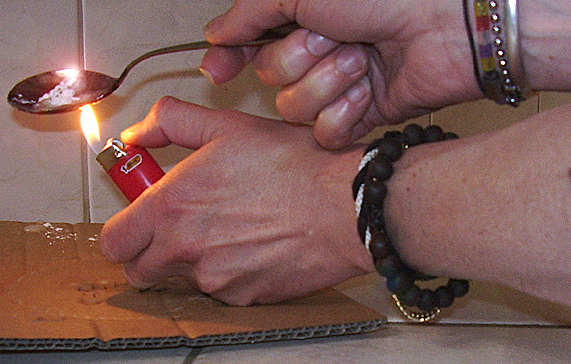A Life-Saving Overdose Drug Is Getting Harder to Afford

By:
A West Virginia town's chaotic and deadly five hours on Monday could have been even worse were it not for a life saving overdose drug, according to local health officials.
 Wikimedia Commons/ Hendrike - wikimedia.org
Wikimedia Commons/ Hendrike - wikimedia.org
Matt Pearce from the Los Angeles Times wrote about the ordeal in Huntington, West Virginia, during which local public safety workers responded to 26 heroin overdoses in a single afternoon.
“All they can tell us is that ‘people are showing up and dying,’” an official said, according to the Times. “We’re not sure what’s going on.”
What was going on was the beginning of a slew of overdoses attributed to a bad batch of heroin. By 8:30 p.m. on Monday, 26 people had overdosed but only two died. Officials told the Times the reduced death count was largely thanks to first responders' use of the opioid overdose antidote naloxone.
“I think that it reflects that our strategies are working,” Dr. Michael Kilkenny, the director of the Cabell-Huntington Health Department told the Times. “Naloxone is a great tool to use, and especially useful in the hands of community members closest to the victims."
However, the life saving drug can be expensive.
.jpeg?auto=format&crop=faces&fit=crop&q=60&w=736&ixlib=js-1.1.0) Wikimedia Commons/ Intropin - wikimedia.org
Wikimedia Commons/ Intropin - wikimedia.org
Although the majority of states have laws making access to Naloxone easier, the cost of the drug is rising.
According to Business Insider, "a popular injectable version of the drug has gone from $0.92 a dose to more than $15 a dose over the last decade. An auto-injector version is up to more than $2,000 a dose."
"Naloxone used to be an item purchased by emergency rooms and ambulances … Now that harm-reduction organizations have pushed for laws requiring everyone to carry it, the demand has gone up exponentially," Tessie Castillo, the advocacy and communication coordinator at the North Carolina Harm Reduction Coalition, told BI.
Companies that produce Naloxone "know that they can make more money because of the demand, so they try to," she added.
In Delaware, the state used money seized from drug arrests to give 23 additional police departments naloxone in June.
"This really is meant to be startup funding," said State Attorney Matt Denn to USA Today. "It's a big public health issue that, over the long run, the state ought to be funding as part of the state's public health issue."
In Maine, which has been hard-hit by the opioid crisis, public health advocates said they were worried that the sky-rocketing prices would impact individuals who wanted to purchase the drug for emergency situations.
“We are in the middle of an epidemic right now, and anything that constitutes a barrier for access is a huge concern,” Greater Portland Health CEO Leslie Clark told the Press Herald.
In July, the Senate approved a bill to expand funding to treat opioid addiction, including funding for naloxone. However, Republicans would not agree to vote on the funding amounts until the summer recess ends in September, according to The New York Times.
